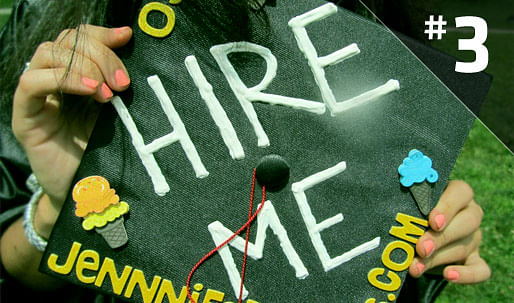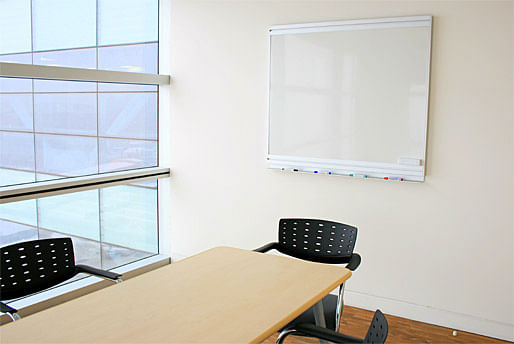

by James Long/Ellicott Long
In the final part of our Graduate Advice blog I look at how to interview successfully and then how to handle your first offer.

Interviewing Successfully
Having applied to positions you should hopefully start to hear back from companies and some may request that you come along to attend an interview. Depending on location this could be a telephone or video conference interview initially but I will focus the advice below assuming a face-to-face interview at the offices of the company. As a graduate this may well be your first interview so it’s perfectly natural to be nervous. This guide should help keep the nerves at a minimum.
Essentially an interview is your opportunity to prove to a company that you can firstly do the job and that secondly you want the job. It is about giving the interviewer confidence in your ability whilst demonstrating enthusiasm in the role and company. What you may lack in experience you make up for by showing you are prepared and know about the company and position, demonstrating enthusiasm.
As a graduate it is likely that you won’t have lots of professional experience to talk through so you should make sure you are fully prepared for the interview and show real enthusiasm. This means researching everything you can about the company. Of course visit their website but go further – look up conferences where employees have spoken, understand their history, look at their corporate information (financials etc) and take the time to read up on key personnel. You want to walk into the office on the interview day feeling confident you can cover most of the questions they may ask you about their company.
Once you have researched the company, make sure you practice the presentation of your experience and portfolio. As mentioned in Part 2 of this article, try to tailor your presentation to the company you are meeting. Don’t just practice reciting the whole portfolio, particularly if it is extensive. You have to keep the interviewer engaged and talking for an hour about every drawing in the portfolio will most likely bore them. As a rough guide, a one hour interview should usually encompass 30-40 minutes of time spent talking through your portfolio so try to prepare for that. Pick out relevant projects which you think the interviewer may find most interesting – they can always ask to see more. Doing this also shows you have done your research and shows them you really want the job.
On the interview day, make sure your portfolio is in order, any laptop is charged and that you are presentable. In the design industry it is incredibly hard to advise on dress code. As most of you know, designers can be more casual than corporate so you do need to try and find out if possible what to wear. Ask tutors and fellow students who may have interviewed at the company. If you know someone inside they’re usually the best to ask. As a rule of thumb I would advise erring on the side of caution and wearing a suit although a shirt (no tie), smart trousers and shoes can be ok. Luckily, designers are less likely to judge on this aspect but do make sure you are presentable.
On arrival do all the usual in an interview and outlined in most guides – greet with a smile, firm handshake, maintain eye contact, sit upright and maintain a positive attitude. Most importantly listen to the interviewer. Interview formats will vary greatly from company to company but most will briefly introduce the company before asking you some initial questions about your background (both personal and professional) – this should put you at ease and then the interviewer will start to dig a bit deeper and look through your portfolio. Listen carefully to questions and try to answer slowly and to the point – it’s very easy to waffle on and get sidetracked. Present your portfolio confidently and try to gauge if they would like to see more or less. Ensure you talk about YOUR experience and what YOU have done on projects, both academic and professionally. They will start to build a picture of where you may fit in the company and start to see you can do the job. Do show them what you may consider “boring” details or technical drawings.
The interview will likely come to a close with the interviewer asking if you have any questions. I would always have some prepared in advance and not just generic questions but detailed questions that really show your enthusiasm and interest in the company. Use the opportunity to show off some of your research e.g. “I noticed that you recently opened offices in X, Y and Z – do you have any plans to open up other offices?”.
The interviewer may also ask you about salary here. Now this is incredibly hard to get right. It is easy to overprice yourself or worse, undersell yourself. I often recommend a candidate pleads a little ignorance i.e. you tell the interviewer you’re not certain of your market value but none-the-less are keen to see what they may be able to offer in line with their current graduate intake.
At the end of the interview, again smile, give a firm handshake and ultimately thank the interviewer for their time. Reiterate your interest in the role, even if you have some doubts following the interview. You are much better off getting yourself an offer YOU can decide on rather than dismissing the opportunity at interview. Ultimately let them know you look forward to hearing from them – they may outline the next steps; further interviews, decision dates and the like.
Once home from the interview it is always worth sending the interviewer an email thanking them for their time and again showing your interest and demonstrating your enthusiasm.

Accepting An Offer
By now you should have had an interview or two and start to receive feedback. The ideal scenario is that your interviews have gone well and you now start to have firms contacting you with offers of employment. Some companies may call to verbally offer you a position and talk through the details. Others may email or post you an offer letter. Either way, take the time to understand the information outlined and what you are being offered. Don’t be pushed into accepting a role on the phone if you are called with an offer – be really positive and ask them to forward the offer letter/draft contract for you to review.
An offer should include details on job title, basic salary, any bonuses (discretionary or otherwise), holiday entitlement, probation period and any other benefits (healthcare, insurances etc). It may have a provisional start date which is nothing to be concerned about and can be confirmed or agreed at a later date. Generally speaking a company will send an offer letter, by email or post, rather than a contract – there will usually be somewhere for you to sign your acceptance and then a company would send a contract for you to read/sign or have one ready for you to sign on your first day.
If you are unsure about anything, seek advice either from friends and tutors or don’t be afraid to ask the company for clarification on anything you are unsure of. If you are not certain if the salary is at the right level, again, ask the advice of people you know and try to benchmark where the offer stands in the market in general. If you find it may be lower (and be careful here) you can go back and ask for an increase if you are confident it is undervaluing you. Ideally you will have a couple of offers to consider alongside each other so you can make an informed decision as to the best opportunity.
As a graduate it is unlikely there will be a great deal of information about the position you will take. This is simply down to workloads being flexible and graduate candidates generally being assigned where needed on projects. Therefore don’t be surprised if, when you receive an offer, the company is unable to go into detail regarding the projects or team you may be joining. This is nothing to worry about and perfectly normal in the design industry and most companies will quickly see where your strengths lie and position you accordingly.
When considering an offer, take some time if you need to but not too long. Don’t forget there are generally another 5-10 people in consideration for a graduate role, ready to step in if you decide to go elsewhere or take too long deciding. If you are happy with a company and an offer by all means accept on the spot. If you need to take a couple of days to make sure that you have all the offers available to you then do so.
Take into consideration the company and opportunity you are being offered. You may have an offer from a big name design firm but think carefully about the type of experience you may get. Sometimes (although certainly not always) you may take on a smaller role in a bigger design name. If you have offers which you think may give you greater hands on exposure and learning potential but are not with a recognised name, do seriously consider them as you can often develop through the next stages in your career more quickly when compared to your peers. If you see the chance to work on a project from early concept right through to completion then this is also very valuable graduate level experience to gain and will stand you in good stead in the future.
Ultimately go with the option that feels right to you. Sometimes the place you enjoyed interviewing the most may not have the biggest salary or best package but may be the place you’ll ultimately enjoy working at the most, and this is equally important. Make the most of the first opportunity – there will be many further career decisions to take in the future but everyone remembers their first job so enjoy it, celebrate getting a new position and know that you have done extremely well to receive an offer/s of employment.
No Comments
Block this user
Are you sure you want to block this user and hide all related comments throughout the site?
Archinect
This is your first comment on Archinect. Your comment will be visible once approved.